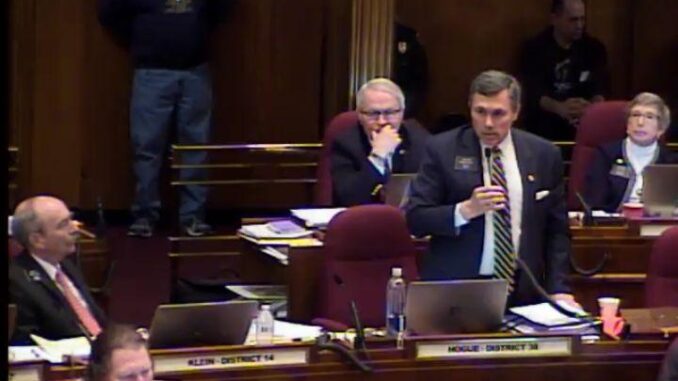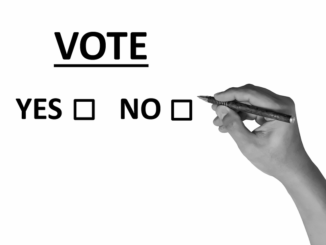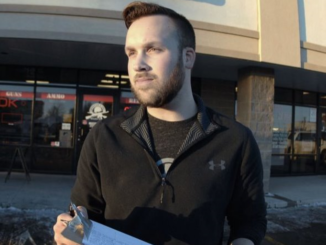
We’re 29 days out from the General Election. As is often the case in a presidential election year, the question of who will occupy the White House dominates the news. Yet, for North Dakotans, there’s another vitally important issue on the ballot— Constitutional Measure No. 2.
Measure 2 found its way onto the November ballot as a result of our most recent Legislative Session. Senator David Hogue (R – District 38) — an attorney from Minot — was the primary sponsor of Senate Concurrent Resolution 4001, which was the legislation that created Measure 2.
Like many of us, Senator Hogue is troubled by the amount of outside dollars that have recently flowed into the state supporting changes to our constitution. Examples of this are Marsy’s Law (2016) and the Ethics Commission (2018).
In the case of Marsy’s Law, the campaign was funded entirely by a billionaire. His $2.37 million campaign dwarfed the paltry $11,750.00 raised to oppose it.
In addition to the problems associated with out-of-state money, once a constitutional measure reaches the ballot, it only takes a simple majority of the electorate to pass it. Put all of this together, with the reality that many voters don’t do a deep-dive into proposed constitutional changes, and the outcome can indeed be less than desirable.
So, what exactly does Measure 2 propose as the fix to all of this? It’s actually quite simple. It will amend Section 9 of Article III, and here’s how it will read on your ballot:
Section 9. A constitutional amendment may be proposed by initiative petition. If signed by electors equal in number to four percent of the resident population of the state at the last federal decennial census, the petition for a constitutional amendment may be submitted to the secretary of state. An initiative to amend the constitution may be placed on the ballot only at a general election. If electors approve an initiative for a constitutional amendment, the amendment must be submitted to the subsequent legislative assembly. If the initiative is approved by a majority of members of each house in the legislative assembly, the initiative is deemed enacted. If the legislative assembly does not approve the initiative, the initiative must be placed on the ballot at the next general election. If the majority of votes cast on the initiative are affirmative, the initiative is deemed enacted. All other provisions relating to initiative measures apply
heretoto initiative measures for constitutional amendments.
To summarize that for you, if Measure 2 passes, these are the steps that will be taken if future constitutional measures gain the required signatures to get on the ballot:
- The amendment will go to a vote of the people in a General Election.
- If passed, it will then be submitted to the next Legislative Assembly.
- If a majority of each house in the legislature approves, the measure will be enacted.
- If the legislature doesn’t approve, it will be placed on the next General Election ballot for a second vote of the people.
- If approved by the people again, the measure will be enacted.
In other words, without the legislature’s approval, the people will have to pass initiated constitutional measures twice in order to change the constitution.
While I agree wholeheartedly that there should be a higher bar than a simple majority for changing our state’s founding document, I don’t believe Measure 2 is the answer. In fact, I think it creates a problem.
Perhaps I can illustrate this best by asking some questions. Who stands to lose the most if Measure 2 passes? To me, the answer is simple— the grassroots. After all, who is more likely to afford not one, but two campaigns to amend the state constitution— millionaire’s and billionaire’s or grassroots activists? I think you know the answer.
That’s right. The very people many proponents of Measure 2 suggest they want to make it more difficult for are the ones who would be inhibited the least by its passage. And that just doesn’t make any sense to me.
For a grassroots movement, these campaigns are extremely time consuming and labor-intensive. Funding and volunteers can be difficult to come by. Running one is a tall order. Having to do it twice may border on impossible.
Make no mistake about it, there’s much more that can be said about this issue. But suffice it to say, I believe that if Measure 2 passes it may well be the death of grassroots activism in North Dakota. At least when it comes to initiated constitutional measures that is.
I’m all for solutions. But this isn’t one. Vote NO on Measure 2.
PLEASE LIKE & SHARE!
Sources:
- https://vip.sos.nd.gov/pdfs/Measures%20Info/2020%20General/Constitutional%20Measure%20No.%202.pdf
- https://www.pringlelaw.net/our-attorneys/david-hogue/
- https://ballotpedia.org/North_Dakota_Marsy%27s_Law_Crime_Victim_Rights,_Initiated_Constitutional_Measure_3_(2016)#:~:text=Marsy%27s%20Law%20is%20a%20type,who%20was%20murdered%20in%201983.
- https://ballotpedia.org/North_Dakota_Measure_1,_Ethics_Commission,_Foreign_Political_Contribution_Ban,_and_Conflicts_of_Interest_Initiative_(2018)





